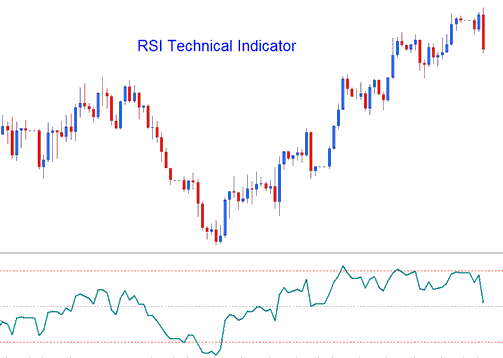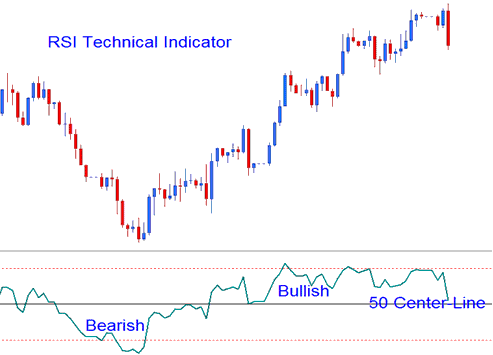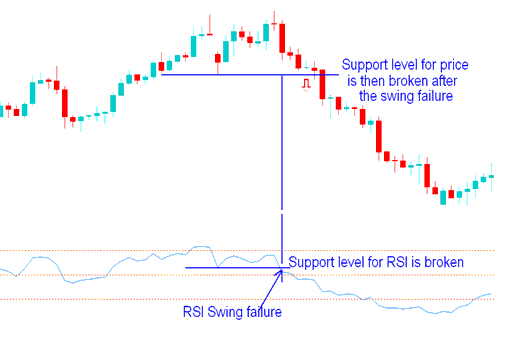Relative Strength Index Stock Indices Analysis and RSI Signals
Developed by J. Welles Wilder, explained in the book "New Concepts in Technical Trading Systems".
RSI is the most popular indicator & it is a momentum oscillator and a trend following indicator. RSI compares a trading price magnitude of the recent price gains against its magnitude of recent losses price losses & draws this data on a scale of values that ranges between 0-100.
RSI measures the momentum of a stock indices instrument: values above 50 signify bullish momentum while values below 50 center-line signify bearish momentum.

- RSI is drawn as a green-line
- Horizontal dashed lines are drawn to identifying over bought and oversold levels are i.e. 70/30 levels respectively.
Indices Analysis and How to Generate Trade Signals
There are several methods used to trade, these are:
50-level Crossover Signals
- Buy signal - when the indicator crosses above 50 a buy/bullish signal is given.
- Sell Stock Indices Signal - when the indicator crosses below 50 a sell/bearish signal is given.

RSI Pattern Setups
Traders can draw trend lines & map out chart setups on the RSI indicator. The RSI often forms patterns such as head and shoulders chart pattern which might not have formed clearly on the price chart.
Indices Support/Resistance Break outs
RSI is a leading indicator & can be used to predict Support/Resistance Breakouts before price breaks its support/resistance level. RSI uses the swing failure signal to predict when price is about to break support and resistance areas.

Swing Failure - Support and Resistance Break out
Overbought/Oversold Conditions on Indicator
- Overbought- levels above 80
- Oversold- levels below 20
These levels can be used to generate trading signals such as when RSI turns up from below 20 after oversold, buy and sell when RSI crosses to below 80 after overbought, sell. These signals are not suitable for Stock Indices Trading because they are prone to a lot of fakeouts.
Divergence Indices Setups
Divergence trading is one of the technical analysis method used to trade reversals of the price trends. There are four types of divergences that can be traded with this indicator covered in the divergence tutorial on this website.


